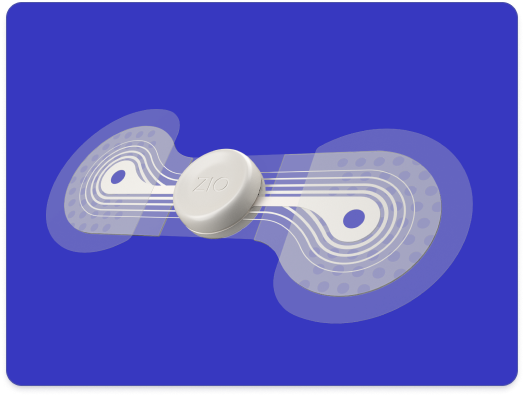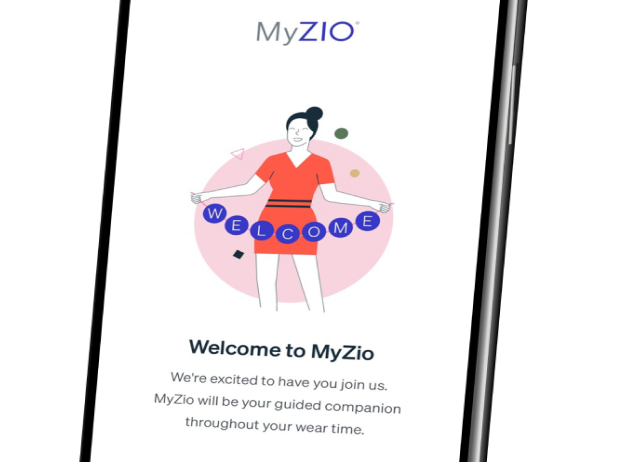Made Precisely for You
In order to provide your cardiac monitoring service, Zio® electrocardiogram (ECG) monitors can be applied at your doctor's office or conveniently sent to your home. These small, comfortable devices are designed to be easy to wear,1-3 allowing you to go about your daily life while they continuously record your heartbeat.1,2


Get to the heart of the matter more quickly
Zio ECG monitors have been worn by millions of patients12 to help detect irregular heart rhythms, including atrial fibrillation. With just a single test, your doctor will be provided high-quality, actionable heartbeat data4 to help deliver the care that you need.

Simplicity at every step

Everything you need all in one place
With the MyZio app, you can find support throughout your Zio experience right at your fingertips.
- Access information about the iRhythm service
- Easily log your symptoms11
- Receive timely notifications
- Find instructional videos
- Get answers to your questions from anywhere
- Zio Monitor Instructions for Use. iRhythm Technologies.
- Battisti et al. Abstract 4141717: Feasibility of point-of-wear patient satisfaction surveys to validate patient-centered product enhancements: results from over 300,000 patients for long-term ambulatory cardiac monitoring. Circulation. 2024;150:A4141717. doi:10.1161/circ.150.suppl_1.4141717. https://www.ahajournals.org/doi/abs/10.1161/circ.150.suppl_1.4141717
- Data on file. iRhythm Technologies, 2022-2023.
- Data on file. iRhythm Technologies, 2023.
- Data on file. iRhythm Technologies, 2017, 2023.
- The Zio monitor device should not be submerged in water. During a bath, keep the device above water. Please refer to the Zio monitor labeling instructions or Patient Guide for the full set of details.
- Zio XT Clinical Reference Manual. iRhythm Technologies.
- Zio AT Clinical Reference Manual. iRhythm Technologies.
- Zio AT does not require battery changes or charging. Zio AT has wear time transmission limits and the Zio AT device is not intended for use in critical care patients because the reporting timeliness is not consistent with life-threatening arrhythmias such as ventricular fibrillation. Refer to Zio AT Clinical Reference Manual for additional information. Do not use Zio AT for patients with symptomatic episodes where variations in cardiac performance could result in immediate danger to the patient or when real-time or in-patient monitoring should be prescribed.
- mSToPS clinical trial demonstrates Zio by iRhythm significantly improves health outcomes for at-risk patient populations, iRhythm Technologies, 2021. www.irhythmtech.com/company/news/irhythm-technologies-and-the-national-association-of-managed-care-physicians-partner-to-study-the-value-of-ambulatory-cardiac-monitoring-solutions-0. Accessed September 17, 2024.
- Data on file. iRhythm Technologies, 2024.
- Data on file. iRhythm Technologies. 2025.
WEB0019.02